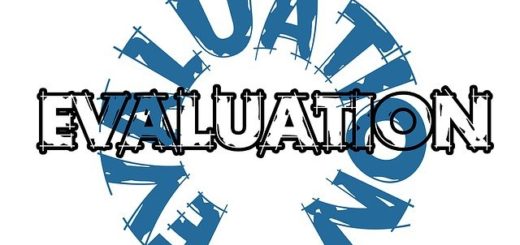Consultancy – GIS Services for the IPARD Program
IPARD Program Information
The Indigenous Peoples Alliance for Rights and Development (IPARD) is a five-year United States Agency of International Development (USAID) Global Development Alliance (GDA) with a grant that runs from July August 12, 2020, through August 11, 2025. The IPARD will be implemented through Indigenous National Development (IND) Programs aimed to secure rights, enhance capabilities, and create self-determined economic opportunities for Indigenous Peoples in targeted countries worldwide. With an award of $6,500,000 with a Private Sector match of $6,500,000, the FSC Indigenous Foundation will be Implementing Agency convening multi-sectorial alliance including Indigenous Peoples organizations.
The goal of the IPARD Global Partnership is to empower Indigenous Peoples’ organizations and catalyze an enabling environment where Indigenous Peoples can manage, develop, and govern their territories based on the principles of self-determined development, traditional practices, natural resource management, and respect for their customary rights.
According to the Technical Approach contained in the Program Description, IPARD Life-of- Program will focus its activities around three key objectives:
Objective 1: Organize and convene a Capacity Development Program for Indigenous Peoples’ organizations and stakeholders (Institutional Strengthening): This objective seeks to strengthen the capacities of Indigenous Peoples’ organizations, primarily through the development of monitoring, leadership, management, organizational, technical, and negotiation skills.
Objective 2: Foster an enabling environment for Indigenous Peoples’ recognition, effective participation, and joint decision-making in matters affecting them. (Political Incidence, rights, and Inclusion): Creating an enabling social, political, and institutional environment will encourage collaborative decision-making efforts, social coalitions and partnerships, and mobilization of resources to support self-determined Indigenous initiatives. Indigenous Peoples’ organizations will more effectively influence policy-making decisions with this enabling environment through an Indigenous Peoples Governance Forum. These organizations will also be able to better engage with governments to promote, develop, and implement agreements and policies that support responsible businesses and investments and protect Indigenous Peoples’ rights.
Objective 3: Promote Indigenous Peoples’ sustainable development based on self-determined economic models (Business Partnerships and Indigenous Economies): Through this objective, the Partnership will create business linkages with the private, public, and civil society sectors, and will also improve the institutional, technical, and financial sustainability of Indigenous Peoples self-determined development strategies. First, it will strengthen Indigenous Peoples’ organizations through activities to improve capacities for business development. Second, it will identify improvements and innovations to Indigenous value chain systems and opportunities for private sector engagement. Third, it will promote the development of Indigenous-led economic models for self-reliant and sustainable economic development of Indigenous communities
The IPARD Program will be managed by the FSC Indigenous Foundation at the Panama City Headquarters office. IPARD will be led by the Program Director, three Technical Leads, one for each Objective, a Finance and Administrative Manager, a Monitoring, Evaluation, and Learning Lead, and Regional and Country managers for the main countries of influence.
Given the size of the operation worldwide, IPARD will need to implement some programmatic activities through strategic partners and consulting firms in each country, by contracting specific portions of the technical scope, to reinforce the work conducted and supervised by Program’s staff. These contracting activities will need to be published and compete openly under the USAID rules and regulations, following also FSC-Indigenous Foundation administrative and acquisition procedures, to ensure the transparency of the processes.
For additional information related to IPARD, please consult the Program Technical Description, provided as an annex of this Request for Proposal.
Objectives of the GIS Consultancy
General Objective:
The objective of the consultancy is to develop a comprehensive Geographic Information System -GIS- data collection from all available data sources related to Indigenous Peoples, and initial maps and databases on Indigenous Peoples of the world.
Specific Objectives:
- An updated GIS data collection and database analysis of world countries, with shape-files and maps from all datasets available and developed for strategic use of the IPARD team for looking at strategy and operations to uncover the story within the data, the connections, the blind-spots and the not-so-obvious patterns.
- Shape-files and analysis of global spatial information for Indigenous Peoples presence in the world.
- A proposal for GIS services in a retainer capacity on a one-year basis to become a virtual GIS support for the IPARD Program to develop maps for reports, presentations, meetings on a need-basis.
The consultant will gather up-to-date information that will contain relevant information for the IPARD team on Program interventions. Activities will involve collecting, processing and mapping of geo-data. The results of this work will support decision making processes related to capacity development, governance, and economic models for Indigenous Peoples Organizations. It will also help in the design, and planning phases with IPO and other stakeholders in support of the achievement of the expected outcomes of the IPARD Program.
An illustrative list of information for the GIS system are included here:
Global Shape-files by country of:
- Political Division by countries, and states or departments.
- Indigenous lands (according to type of tenure) and by ethnic groups (when information exists)
- Protected areas
- Vegetation cover
- Forest restoration potential (when information exists)
- Climate risk (flood and drought-prone areas, and other climate-related risks)
- Poverty distribution
- Roads (primary, secondary, tertiary) when available
- Internet Connectivity
- Basic services (hospitals, health centers, water, sanitation, energy, schools) when available
- Economic activities (mining, agriculture, livestock, textile production, tourism) when available
- Forest concessions
- Zoning of timber harvesting
- Areas prone to natural disasters (volcanic eruptions, hurricanes, landslides)
- Forest fires prone areas
- High violence or crime areas by country
General Timelines
The consultancy is expected to be completed in 45 (forty-five) calendar days from the day the contract is signed.
Deliverables
The consultancy will be considered complete on:
- A report and a list of available entry information and digital data sets prepared, as well as, identification of data gaps, including a proposal to acquire the new data and fill in the data gaps;
- An updated GIS data collection with shape-files and databases from all datasets available and developed;
- Digital GIS Maps produced from all the datasets available, such as maps (resolutions to be agreed with Monitoring, Learning and Evaluation Leader) or other GIS products quantifying the current situation, recent changes (where available);
- A Final Technical Report including the status and trend of critical areas including digital maps (at appropriate scales as available).
- Two-day GIS training based on ESRI ArcGIS platforms for the IPARD Monitoring, Learning and Evaluation Leader, on what are the requirements of the program to continue to build GIS capacity and information, and one-day training workshop for the IPARD team on how the system should work, and the use and interpretation analysis. This training does not include certifications for the participants.
Requirements
- A Bachelor’s degree or higher (Master’s degree) in GIS or a similar related field from a tertiary institution. A Bachelor’s degree with additional years of experience can be accepted as the equivalent to a Master’s degree.
- At least two assignments of similar nature and should possess at least 4 years of experience in GIS field.
- High level knowledge of ESRI ArcGIS and technical aspects of geographical data management and utilization.
- Knowledge about data processing, evaluation, and organizing the collection, storage, usage of geographic data and visualization.
- Ability to solve GIS-specific problems and convey GIS information to non-GIS people.
- Good interpersonal communication and coordination skills.
- Ability to adhere to deadlines and flexibility.
- Experience with Indigenous Peoples.
- Being a member of an Indigenous community would be a plus.
- Field experience working or living with Indigenous community preferable.
Selection process
All applicants must meet the minimum requirements described above. Only shortlisted candidates will be contacted. IPARD will select the consultant with the most experience in similar consultancies within the funds available for the consultancy.
Reporting
For the duration of the assignment, the consultant will report to the Capacity Development & Inclusion Program Leader who will co-lead this consultancy with the Monitoring, Evaluation and Learning Leader. They will coordinate with the IPARD team to provide observations and feedback to the consultant. A final electronic report in English will be submitted upon completion of the consultancy.
Monitoring
The Capacity Development & Inclusion (CD&I) Leader will co-lead this consultancy with the Monitoring, Evaluation and Learning (MEL) Leader to monitor the performance of the consultancy. Regular weekly meetings will be conducted between the CD&I and MEL Leaders and the consultant to monitor the progress, consult necessary steps, and provide advice.
Intellectual property rights, patents and other proprietary rights
The Indigenous Foundation shall be entitled to all intellectual property and other proprietary rights including but not limited to: patents, copyrights and trademarks, with respect to products, processes, inventions, ideas, know-how, documents and other materials prepared or collected by the consultant in consequence of or in the course of the performance of this consulting engagement, and the consultant acknowledges and agrees that such products, documents and other materials constitute work performed under the Indigenous Foundation’s engagement.
How to apply
Deadline for submission is May 12,2021 (5:00 p.m. Panama Time) and the Technical Proposal and Cost Proposal must be submitted via e-mail to: procurement.fscif@fsc.org with the subject line, “GIS SERVICES FOR THE IPARD PROGRAM”








